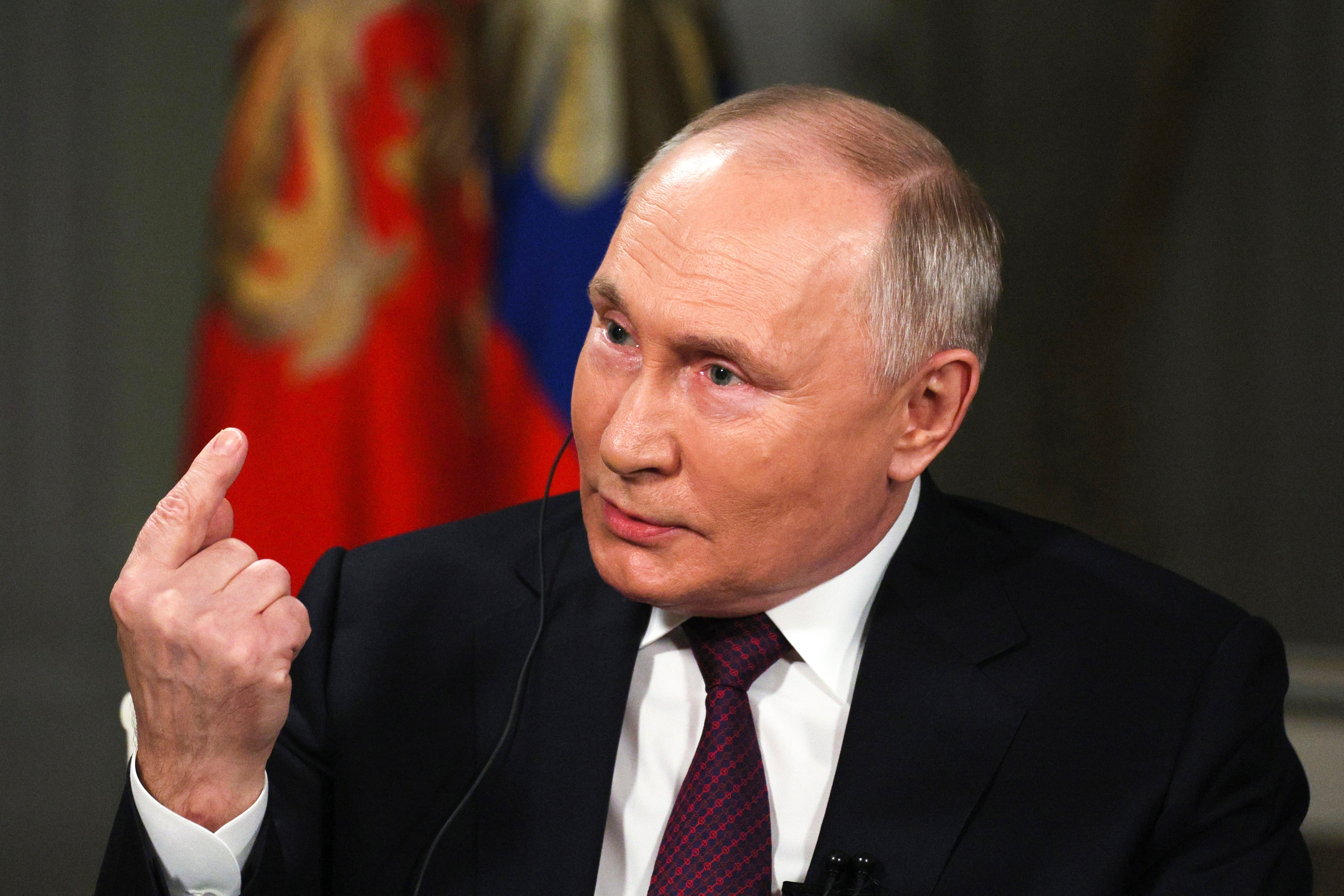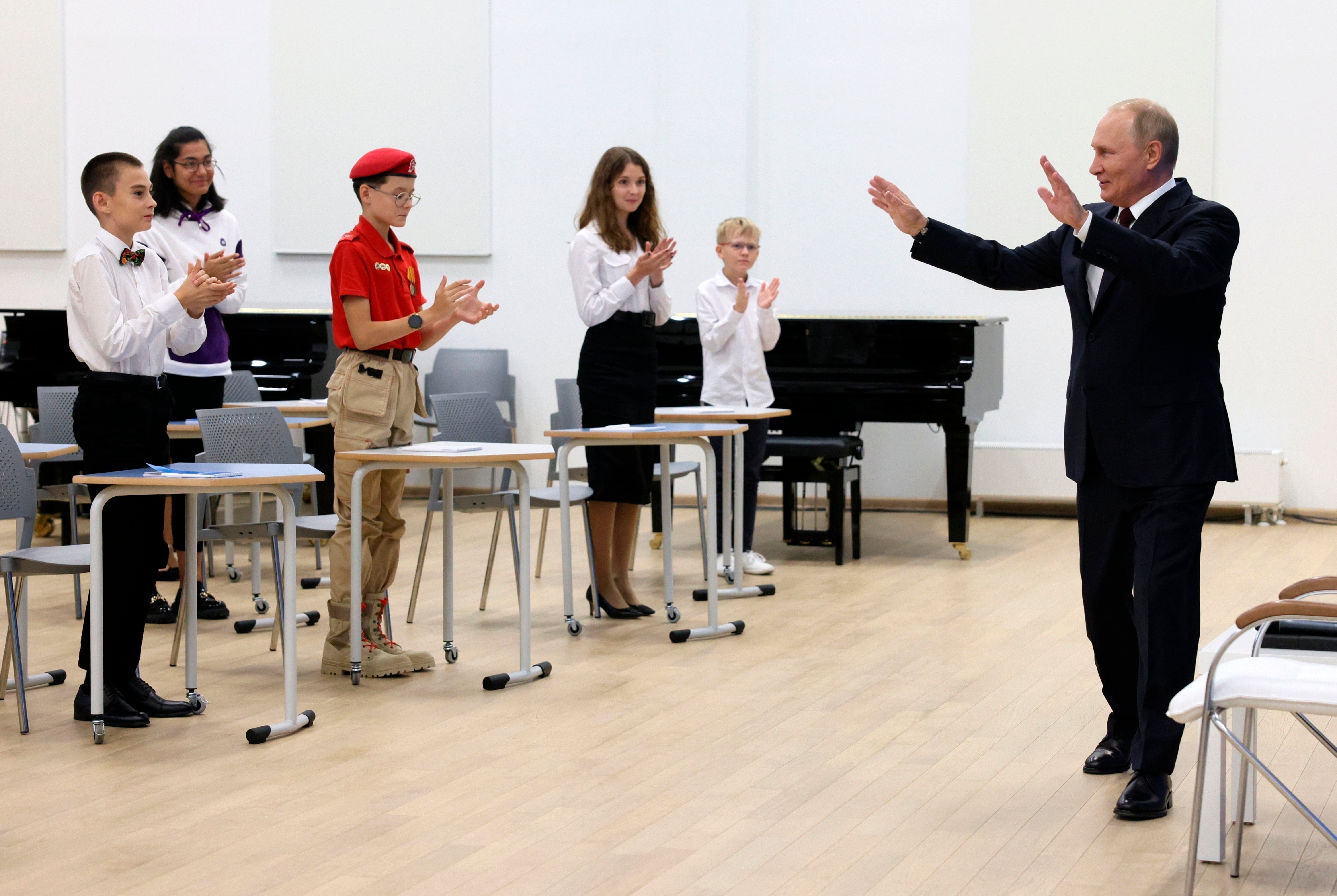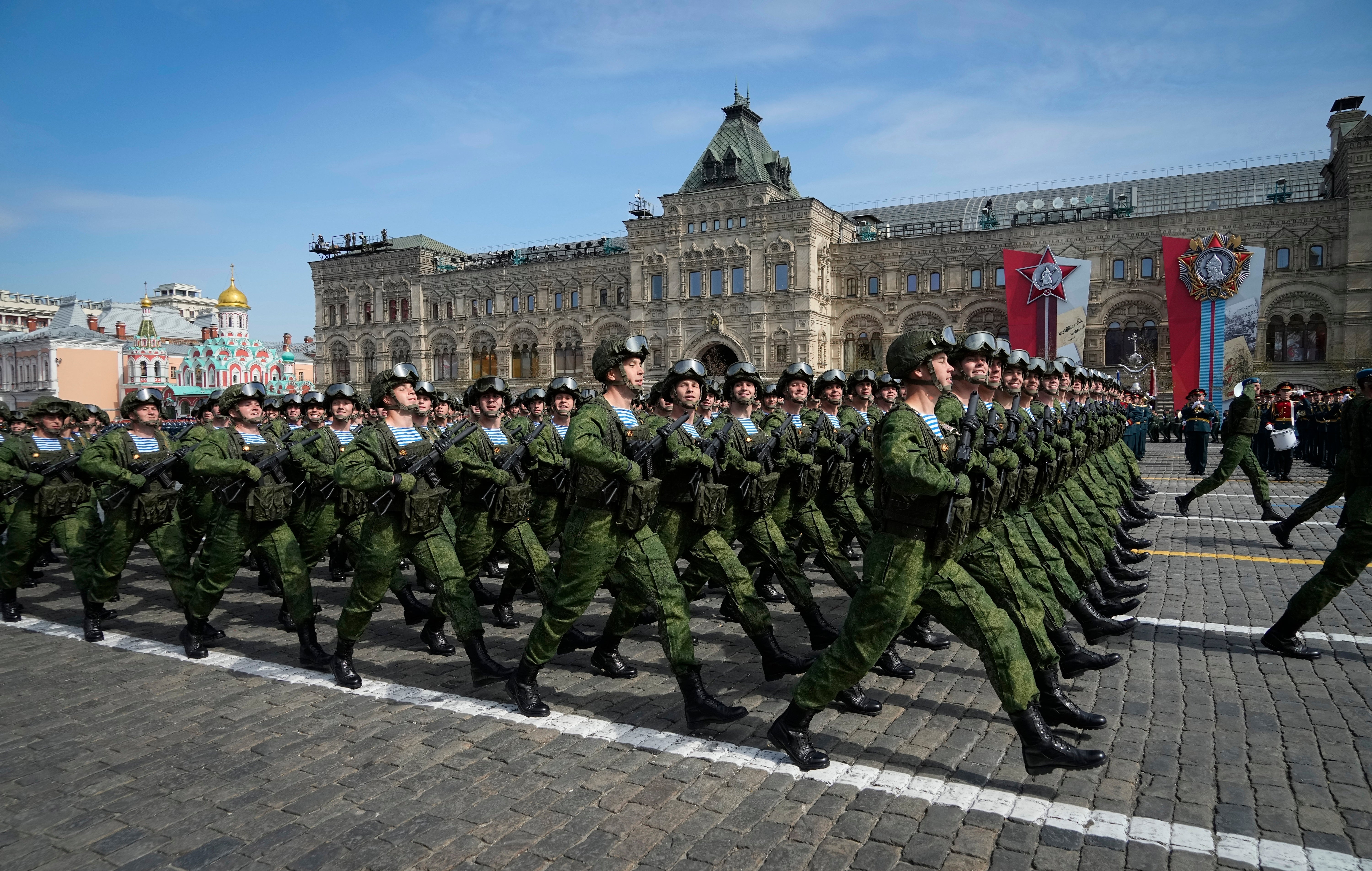How Putin weaponised history — and used it to justify the war in Ukraine
When Tucker Carlson asked Vladimir Putin about his reasons for invading Ukraine two years ago, Putin gave him a lecture on Russian history
Earlier this month, when Tucker Carlson asked Vladimir Putin about his reasons for invading Ukraine two years ago, Putin gave him a lecture on Russian history. The 71-year-old Russian leader spent more than 20 minutes showering a baffled Carlson with dates and names going back to the ninth century.
Putin even gave him a folder caontaining what he said were copies of historical documents proving his points: that Ukrainians and Russians historically have always been one people, and that Ukraine’s sovereignty is merely an illegitimate holdover from the Soviet era.
Carlson said he was “shocked” at being on the receiving end of the history lesson. But for those familiar with Putin's government, it was not surprising in the least. In Russia, history has long been a propaganda tool used to advance the Kremlin’s political goals.
In an effort to rally people around their world view, Russian authorities have tried to magnify the country’s past victories while glossing over the more sordid chapters of its history. They have rewritten textbooks, funded sprawling historical exhibitions and suppressed — sometimes harshly — voices that contradict their narrative.

Russian officials have also regularly bristled at Ukraine and other European countries for pulling down Soviet monuments, widely seen there as an unwanted legacy of past oppression, and even put scores of European officials on a wanted list over that in a move that made headlines this month.
"In the hands of the authorities,” says Oleg Orlov, co-founder of Memorial, Russia’s oldest and most prominent rights group, “history has become a hammer — or even an axe.”
From the early years of his quarter-century rule, Putin has repeatedly contended that studying their history should make Russians proud. Even controversial figures, such as Soviet dictator Josef Stalin, contributed to Russia's greatness, Putin argues.
The Russian president has said that there should be one “fundamental state narrative” instead of different textbooks that contradict each other. And he has called for a “universal” history textbook that would convey that narrative. But that idea, criticized heavily by historians, didn’t gain much traction for quite a while — until Russia invaded Ukraine.
Last year, the government rolled out a series of four new “universal” history textbooks for 10th- and 11th-graders. One featured a chapter on Moscow’s “special military operation” in Ukraine, blamed the West for the Cold War and described the collapse of the Soviet Union as “the greatest geopolitical catastrophe of the 20th century."

Some historians derided it as blatant propaganda. “The Soviet Union, and later Russia, is (depicted in the textbook as) always a besieged fortress, which constantly lives surrounded by enemies,” says historian Nikita Sokolov.
The Kremlin-friendly vision of Russian history is also dominating a chain of sprawling, state-funded “history parks” – venues that host history-themed exhibitions in 24 cities across the country. Some of those popular expositions were criticized by historians for inaccurate claims and deliberate glorification of Russian rulers and their conquests.
Central to the narrative of an invincible Russia is the defeat of Nazi Germany in World War II. Marked on May 9 — Germany officially capitulated after midnight Moscow time on May 9, 1945 — the Soviet victory has become integral to Russian identity.
The Soviet Union lost an estimated 27 million people in the war, pushing German forces from Stalingrad, deep inside Russia, all the way to Berlin. The suffering and valor that went into the German defeat have been touchstones ever since, and under Putin Victory Day has become the country's primary secular holiday.
For the authorities, “Russia’s history is a road from one victory to the next,” sums up Orlov, whose group won the Nobel Peace Prize in 2022. “And more beautiful victories lie ahead. And (the Kremlin says that) we must be proud of our history; history is a means of instilling patriotism. Of course in their view, patriotism is appreciation of the leadership – be it the leadership of the czarist Russia, the leadership of the Soviet Russia or the current leadership.”

As celebrations of over the years grew more imperious, Putin’s government grew less tolerant of any questioning or criticism of the Soviet Union’s actions in that war — or generally.
In 2014, Russian cable networks dropped Dozhd, the county’s sole independent TV channel, after it hosted a history program on the 1941-44 Siege of Leningrad and asked viewers to vote on whether Soviet authorities should have surrendered Leningrad to save lives. That same year, the Russian government adopted a law that made “rehabilitating Nazism” – or “spreading knowingly false information about the actions of the USSR during World War II” – a criminal offense. The first conviction on those charges was reported in 2016.
Research and public debate about mass repressions by Stalin also have faced significant resistance in recent years. Historians and rights advocates cite the inevitable parallels to the current crackdown against dissent that has already landed hundreds of people behind bars.
And a queue of people waiting for their turn to read out the names of victims of Soviet repressions no longer snakes through central Moscow streets in late October. The tradition to read them aloud once a year in front of a monument to victims of Soviet repressions — called “Returning the Names” — was started in 2007 and once attracted thousands of people. In 2020, Moscow authorities stopped authorizing it, citing COVID-19.
According to prominent history teacher Tamara Eidelman, the historical narrative the Kremlin is trying to impose on society contains several main elements: the primacy of the state, the affairs of which are always more important than individual lives; the cult of self-sacrifice and readiness to give up one's life for a greater cause; and the cult of war.
“Of course, (the latter) is never explicitly spelled out. `We have always strived for peace … We have always been attacked and merely fought back,'” Eidelman says.
That laid the perfect ideological groundwork for the invasion of Ukraine, she says, and points out how the “Never again!” sentiment regarding World War II for some in Russia in recent years turned into “We can do it again” — a slogan that became popular after the annexation of Crimea in 2014 and as the Kremlin adopted increasingly aggressive rhetoric towards the West.
Bookmark popover
Removed from bookmarks